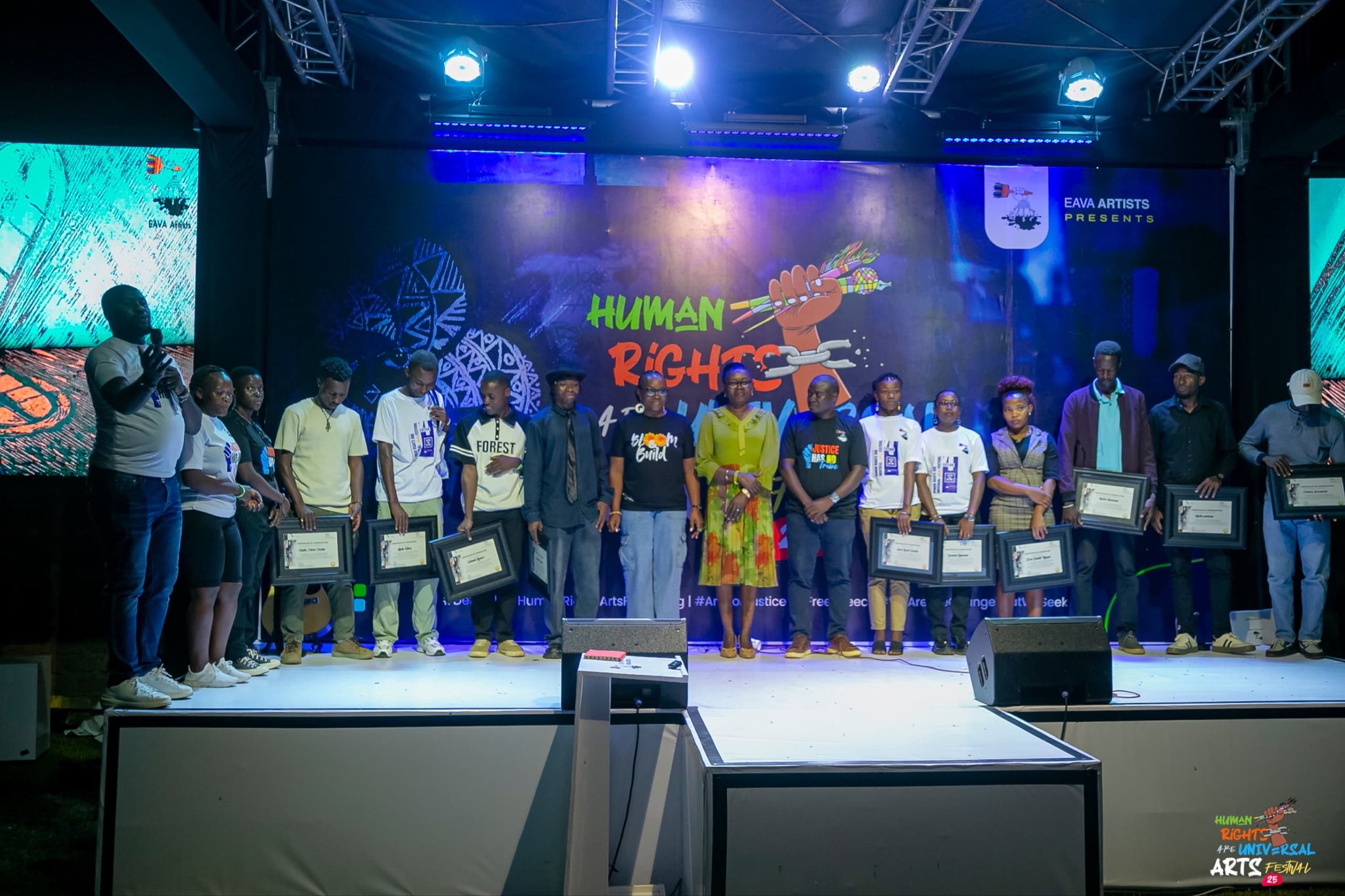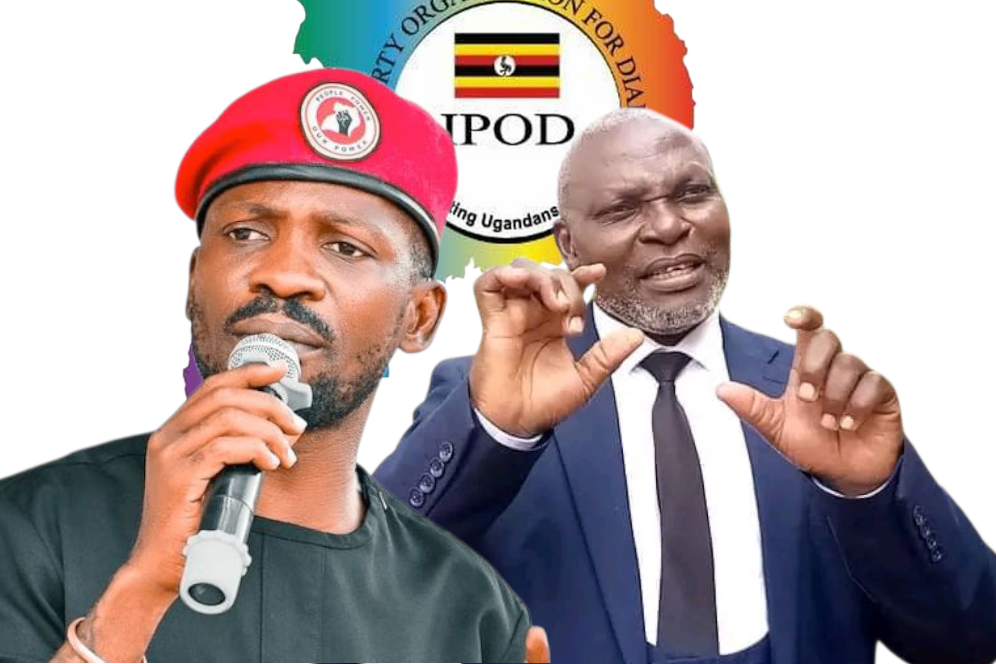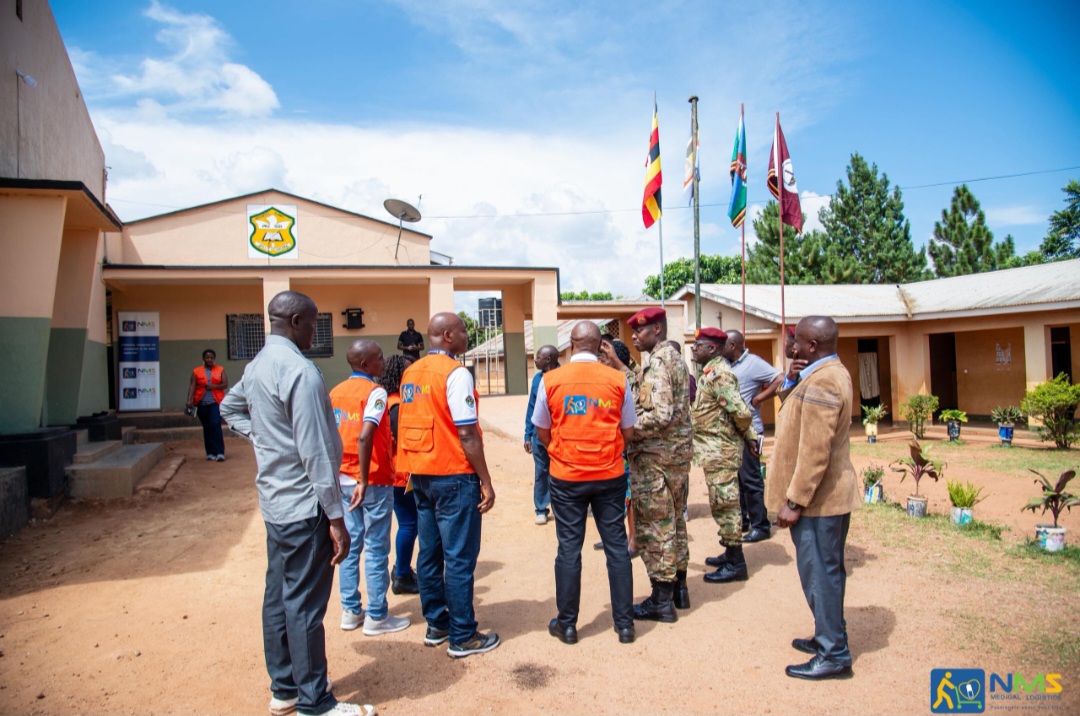At Xension Art Space in Kamwokya, colors, sounds, and stories converged in a celebration of freedom and dignity as the fourth edition of the “Human Rights Are Universal” Arts Festival unfolded from October 9 to 12, 2025.
The festival brought together visual and performing artists, activists, and human rights defenders under one roof, utilizing creativity as a form of resistance, reflection, and renewal of purpose.
Delivering his keynote speech, Mr. Vincent Kyabayinze, the Executive Director of East Africa Visual Artists, set the tone for the gathering by declaring that “art is not just for galleries; it’s a mirror, a weapon, and a healing tool.”
“This edition comes at a time when freedom of expression, justice, and protection of human dignity are under increasing threat around the world. In this climate, our festival stands as a space where people can think, create, and express themselves freely, challenging harmful narratives not through anger or violence, but through the transformative power of art,” Kyabayinze emphasized.
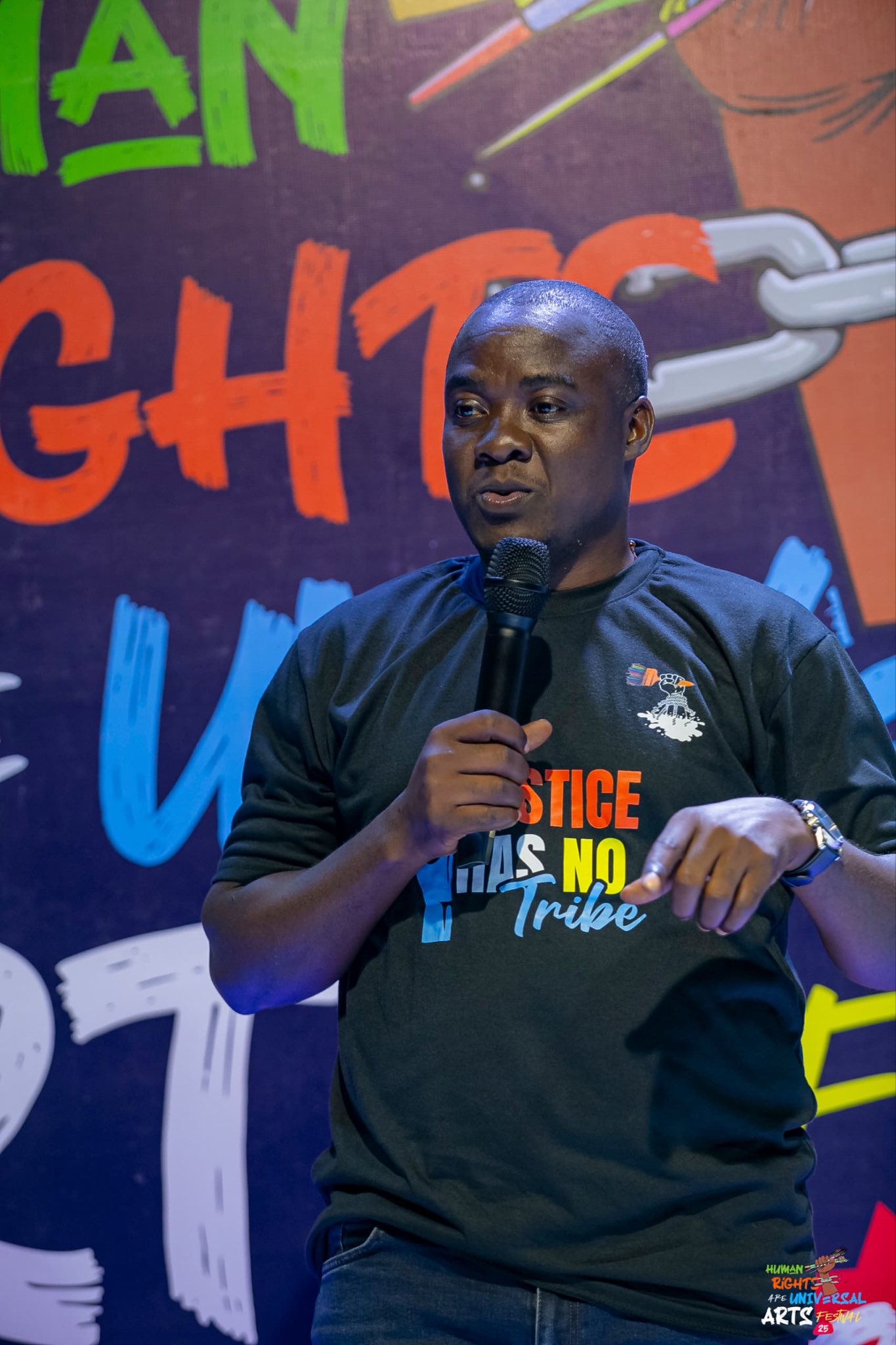
Founded 12 years ago, East Africa Visual Artists has been instrumental in harnessing art as a vehicle for advocacy. This year’s festival, themed “We the People Are the Change We Seek,” encouraged Ugandans to reflect on personal accountability in the collective pursuit of justice and freedom.
Kyabayinze reminded the audience that social transformation begins with individual responsibility:
“We all love a clean city, but we litter as we love. We all love respect, but we don’t respect others. So we need to change as people because we, the people, are the change that we seek.”
The festival also marked the launch of the EAVA Artist Residency Program, an initiative aimed at nurturing emerging visual artists through mentorship, innovation, and social dialogue. The residency’s first cohort showcased powerful works exploring identity, gender, and civic freedom, a testament to how art continues to bridge personal stories with national conversations.
Adding institutional weight to the event, Ms. Sarah Nakumitsa, the Director of Regional Services at the Uganda Human Rights Commission (UHRC), delivered a moving keynote on human rights accountability and civic participation. She reminded the audience that while Uganda has a robust legal and institutional framework, including the UHRC, courts, and local governments, true accountability depends on human rights-based approaches and citizen empowerment.
“Duty bearers, such as government officials, must be mindful that every service they provide is not a privilege but an obligation tied to our human rights,” Nakumitsa said.
“At the same time, citizens the rights bearers must be empowered to hold those in authority accountable. Civic participation is both a right and a responsibility.”
Nakumitsa called for increased civic education and sustained funding for agencies like the UHRC to help Ugandans understand their rights and the mechanisms available for redress.
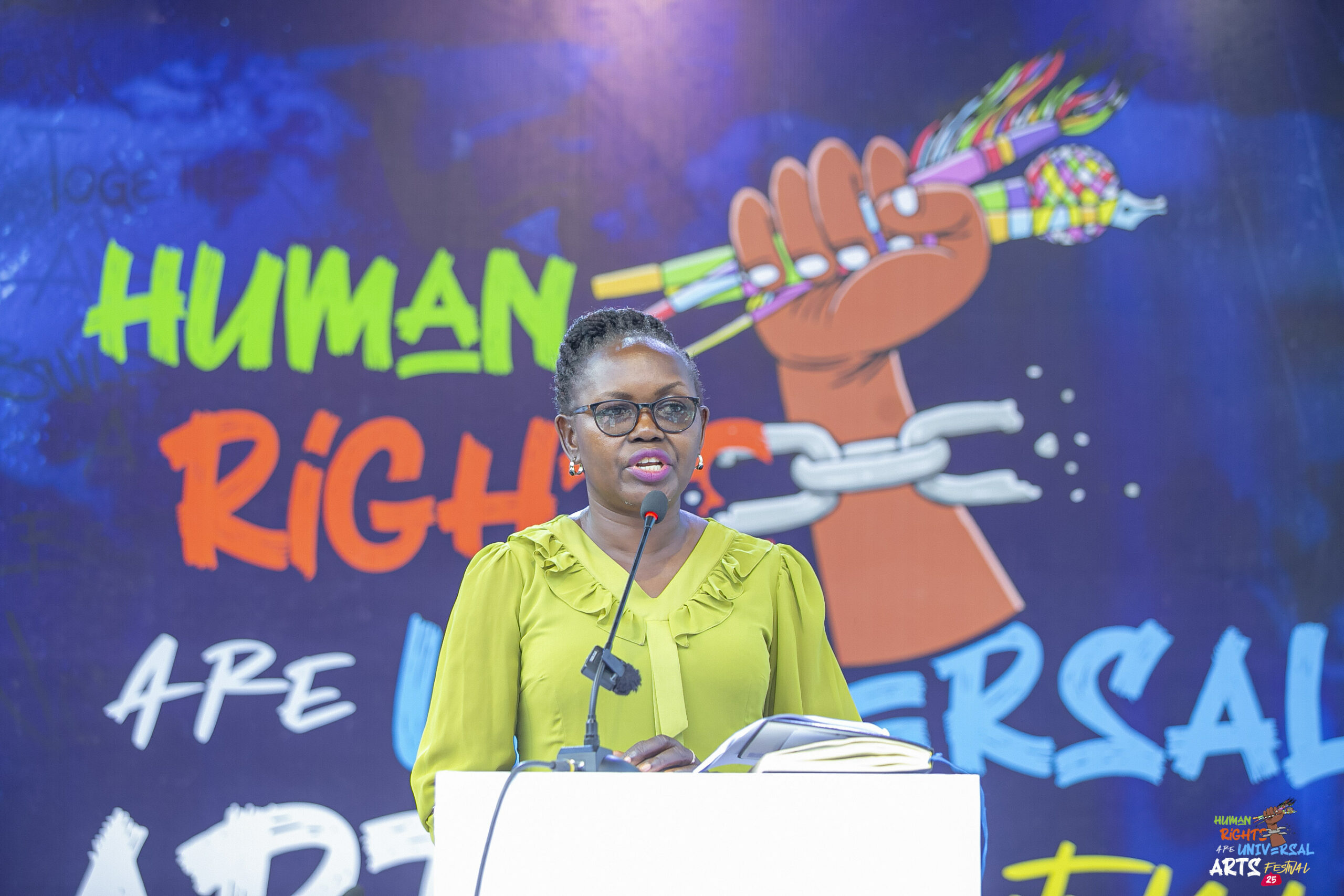
Throughout the four-day festival, artists used painting, poetry, dance, music, and digital installations to amplify issues of freedom, justice, and inclusion. From murals depicting gender-based violence to performances addressing corruption and inequality, each piece served as a living testimony to the struggles and hopes of ordinary citizens.
The event concluded with a joint declaration reaffirming art’s role as a form of civic participation and a force for peacebuilding.
“With a vibrant and creative nation, and with freedom,” Kyabayinze said in his closing remarks, “we can all change what we want to change.”
As the lights dimmed on the final performance, one message lingered that in Uganda’s journey toward justice and equality, art remains not just a reflection of reality but a blueprint for a more humane future.
Do you have a story in your community or an opinion to share with us: Email us at Submit an Article



